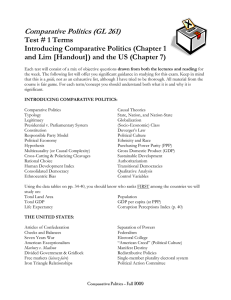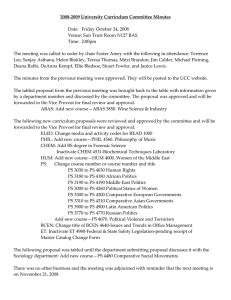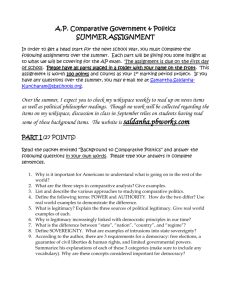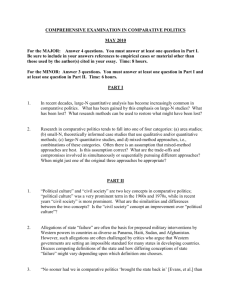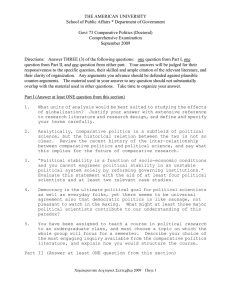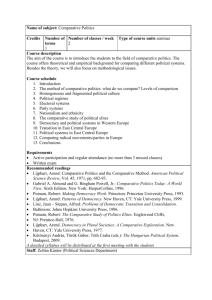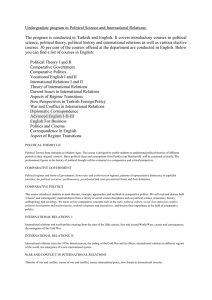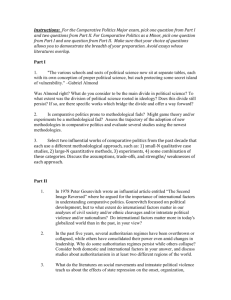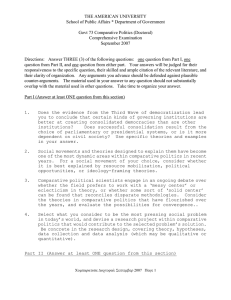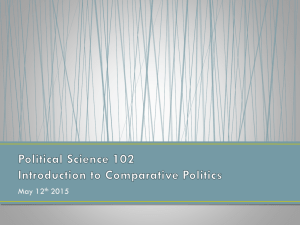Comparative Politics Comprehensive Exam, May 2013 For the
advertisement
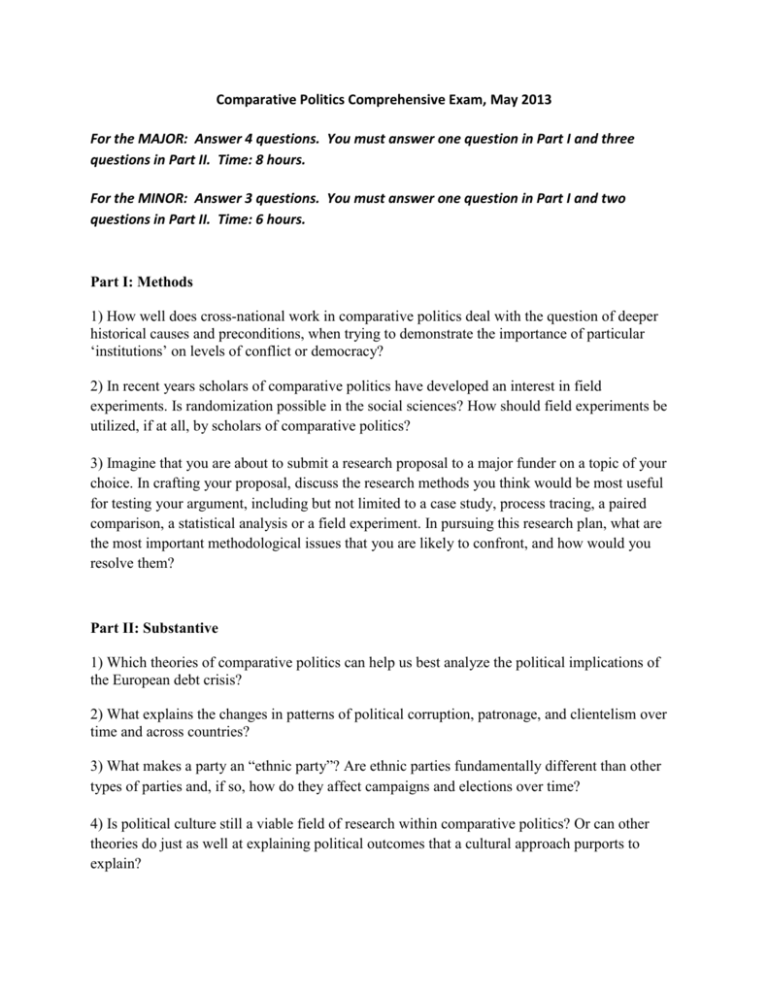
Comparative Politics Comprehensive Exam, May 2013 For the MAJOR: Answer 4 questions. You must answer one question in Part I and three questions in Part II. Time: 8 hours. For the MINOR: Answer 3 questions. You must answer one question in Part I and two questions in Part II. Time: 6 hours. Part I: Methods 1) How well does cross-national work in comparative politics deal with the question of deeper historical causes and preconditions, when trying to demonstrate the importance of particular ‘institutions’ on levels of conflict or democracy? 2) In recent years scholars of comparative politics have developed an interest in field experiments. Is randomization possible in the social sciences? How should field experiments be utilized, if at all, by scholars of comparative politics? 3) Imagine that you are about to submit a research proposal to a major funder on a topic of your choice. In crafting your proposal, discuss the research methods you think would be most useful for testing your argument, including but not limited to a case study, process tracing, a paired comparison, a statistical analysis or a field experiment. In pursuing this research plan, what are the most important methodological issues that you are likely to confront, and how would you resolve them? Part II: Substantive 1) Which theories of comparative politics can help us best analyze the political implications of the European debt crisis? 2) What explains the changes in patterns of political corruption, patronage, and clientelism over time and across countries? 3) What makes a party an “ethnic party”? Are ethnic parties fundamentally different than other types of parties and, if so, how do they affect campaigns and elections over time? 4) Is political culture still a viable field of research within comparative politics? Or can other theories do just as well at explaining political outcomes that a cultural approach purports to explain? 5) What is the relationship between democracy and inequality? Does democracy tend to promote greater distribution of wealth? Why or why not? 6) Which political institutions do you think are most important in promoting economic development? Assess the theoretical and empirical literature linking the institutions and economic growth. 7) What is a ‘hybrid regime’? Is the category ‘hybrid’ useful, or should we simply analyze regimes on a continuum from most democratic to most authoritarian?

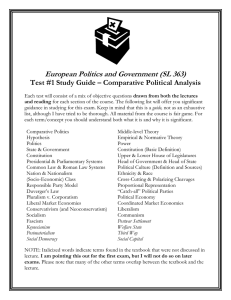
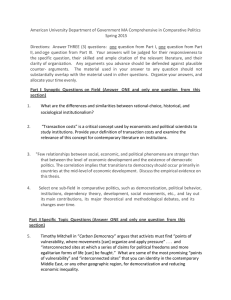
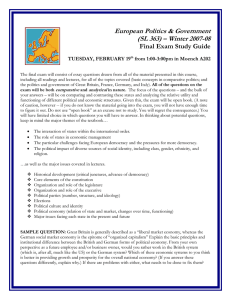
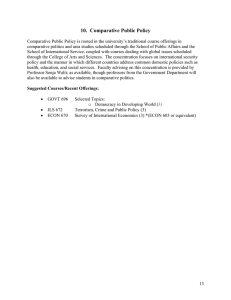
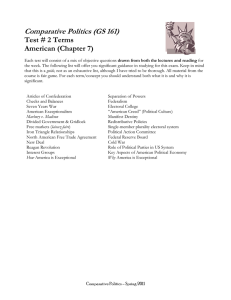
![Comparative Politics (GS 161) Test # 1 Terms and Lim [Handout])](http://s2.studylib.net/store/data/011707684_1-fe811697b4f1a95514b5eff13fe07ae7-300x300.png)

